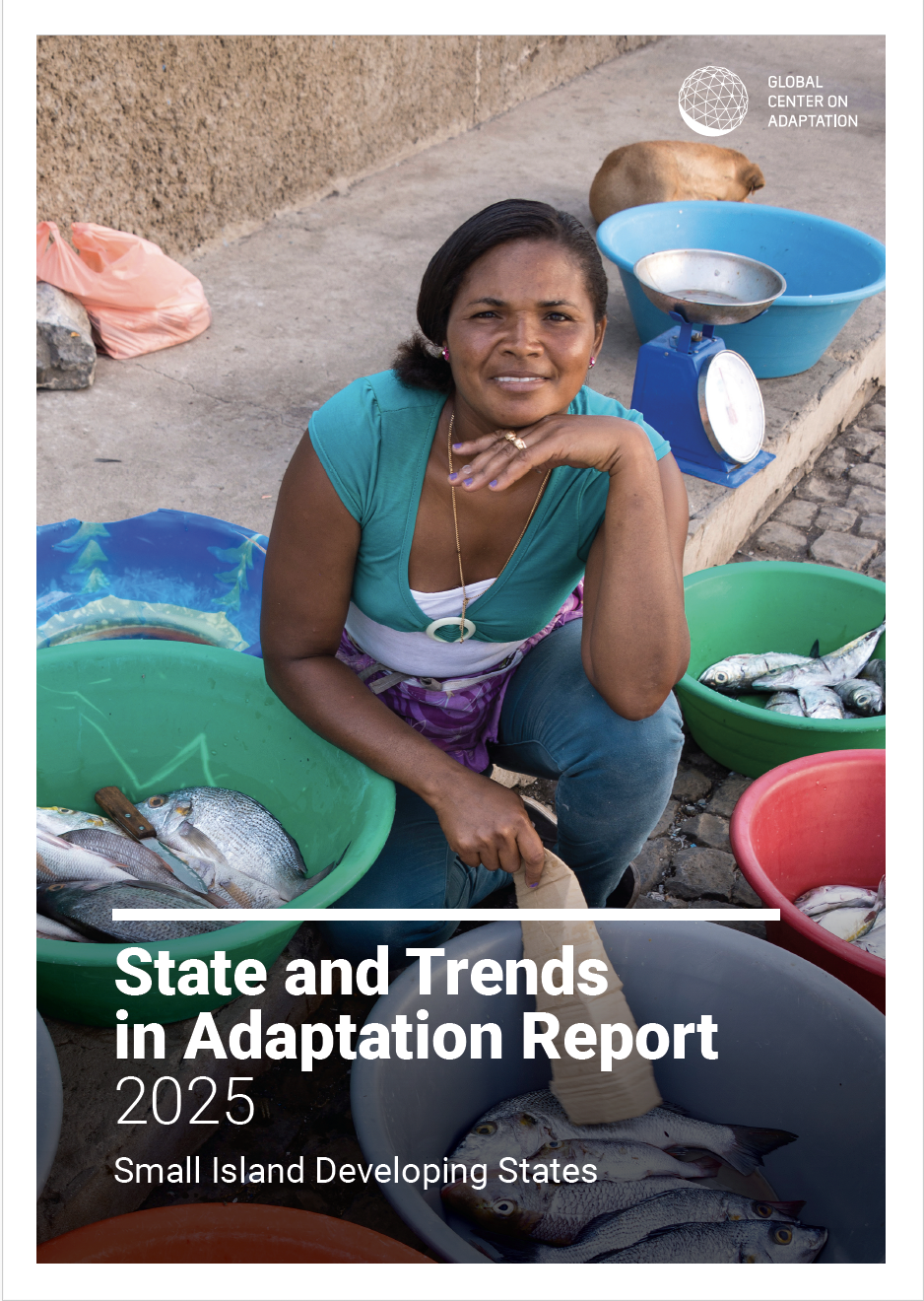State and Trends in Adaptation Report 2025: Small Island Developing States

S mall Island Developing States are among the least responsible for climate change – yet, they stand to suffer the most in terms of negative impacts. Despite contributing less than one percent of greenhouse gas emissions, small island developing states are highly vulnerable to tropical cyclones, hurricanes, storm surges, and droughts. From 1970 to 2020, these states lost US$153 billion due to weather, climate, and water-related hazards.
As part of our flagship State and Trends in Adaptation (STA) series (STA20, STA21, STA22, STA23), the 2025 edition provides an integrated overview of climate risks, adaptation action, and financing needs and gaps in small island developing states. Drawing on strategic partnerships, the report brings together the best knowledge on the science, policy, and practice of climate adaptation in these states.
Read the press release.
Youth Voices from Small Island Developing States
Three members of the 2024 GCA CEO’s Youth Advisory Panel contributed to a chapter of the State and Trends in Adaptation Report 2025: Small Island Developing States. The chapter delves into the challenges faced by young people in small island developing states, good practices from young people taking adaptation actions, and recommendations on how the engagement of young people on climate adaptation can be strengthened in these states. The chapter is structured around the results of two consultations and one survey gathering input from young people from small island developing states.

Ashley Lashley
Barbados

Anusha Seechurn
Mauritius

Julia Tubang
Papua New Guinea